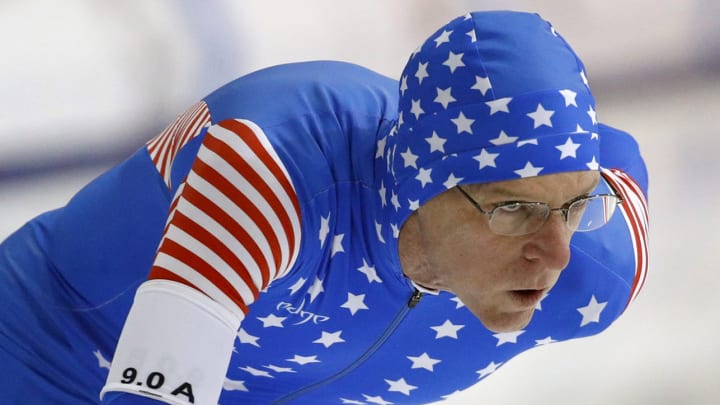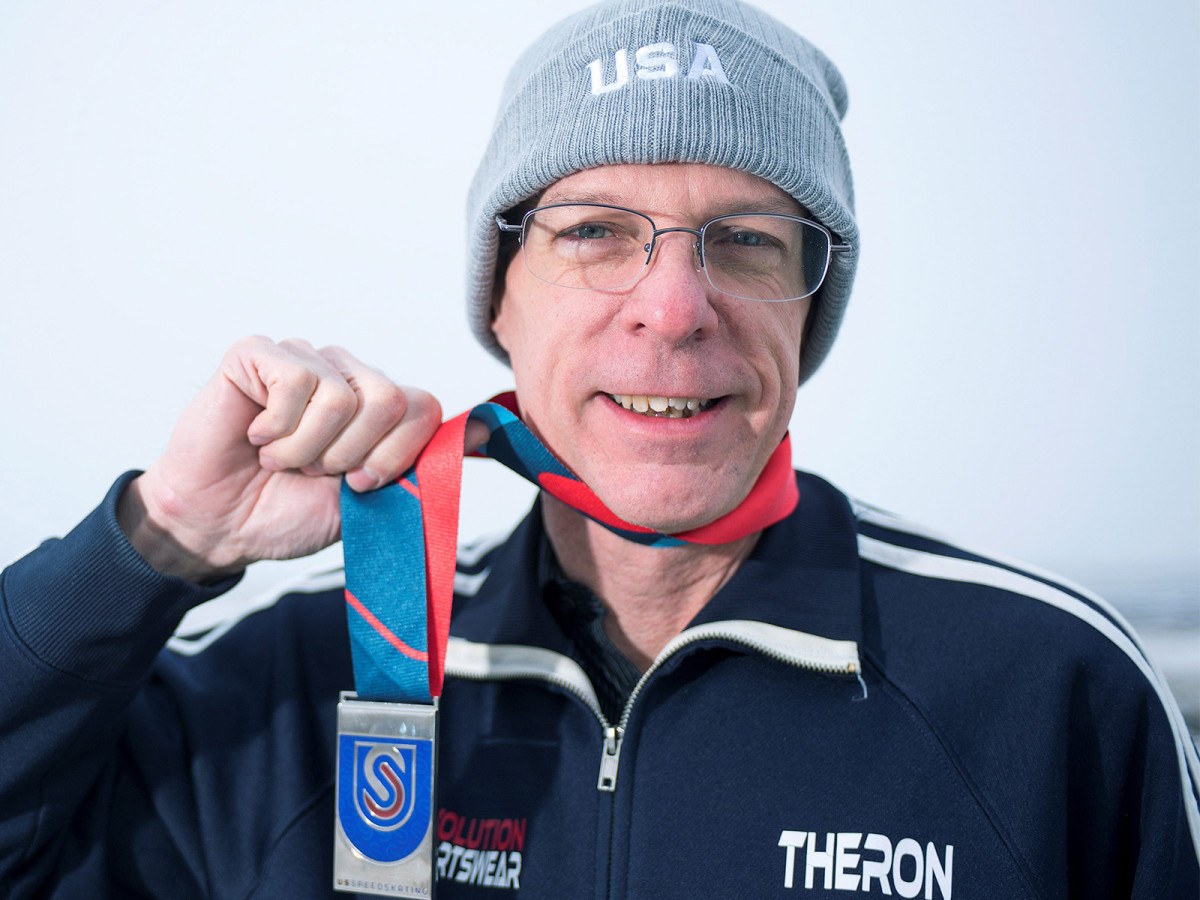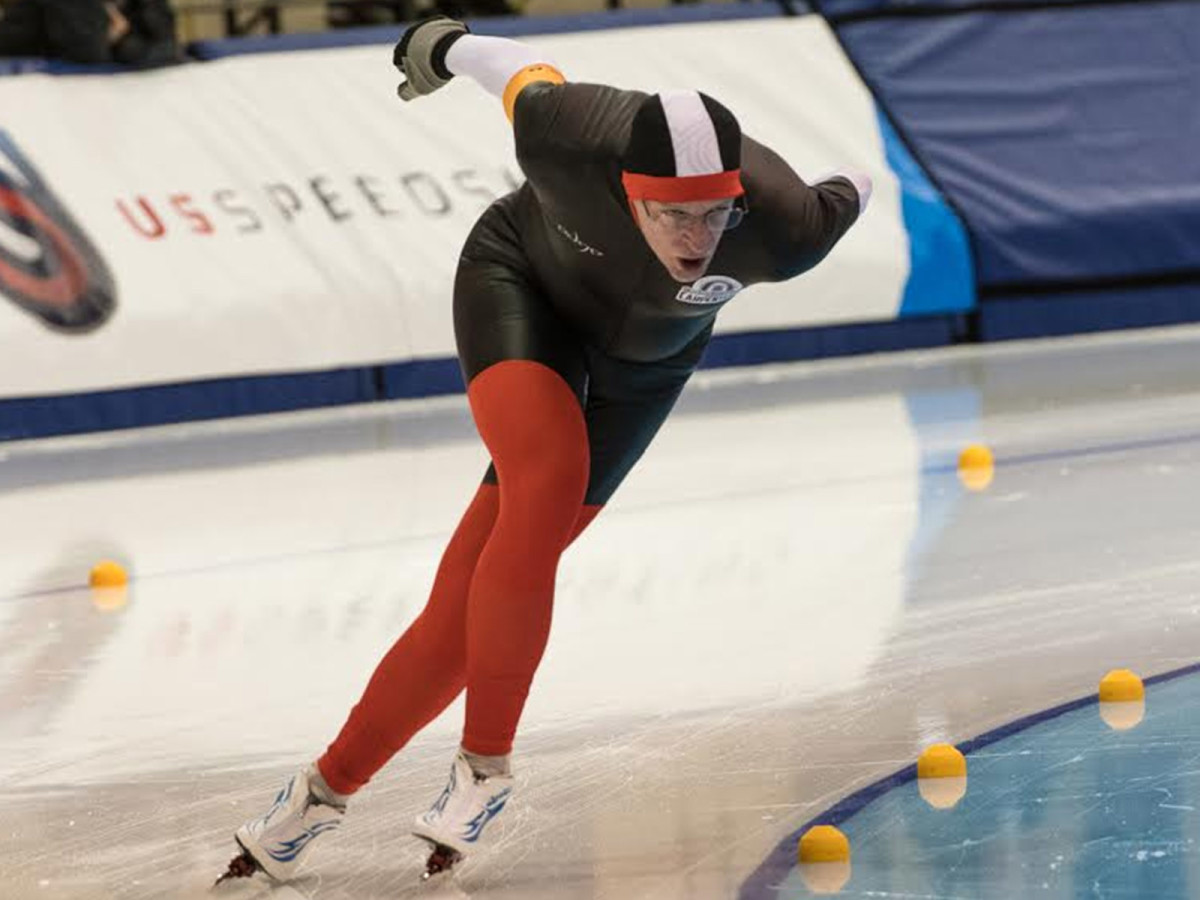At 53, Speedskater Theron Sands Chased an Olympic Dream and Daggone Near Caught It

When the Winter Olympics begin in South Korea, Theron Sands will not be there, and on some level this will disappoint him, even if he’s alone in that sentiment. Everyone else—those who watched the speed skating trials last month in Milwaukee or read about Sands’s exploits—remains amazed that he even made it to the trials. Sands, you see, is 53 years old.
To the outside world, his story makes little sense. Full-time accountant from Champaign, Ill., and father of four makes first trials in his 50s. His is not the tale of a genetic marvel, skillfully managing a descent from a lofty perch, the way, say, Tom Brady or Dara Torres has. Neither is he a wise veteran in a sport with athletes who age well, like curling, which has produced the oldest Winter Olympian to date (Carl August Kronlund, who won silver at age 58). Rather, more than half a century into his existence, Sands is peaking.
He’s received notes and emails—from friends, strangers and fellow mid-life travelers—calling him an inspiration. Many repeat the same question: How did he do it? How, at an age when most Americans are hunkering down for the long winter of their athletic lives, did he compete against elite athletes in their prime?
After the Larry Nassar Scandal, Where Does USA Gymnastics Go From Here?
Well, Sands will tell you, it’s not really that complicated. He did it by practicing three hours a day, six days a week, for six years. He did it by driving 230 miles every other week, starting a GoFundMe for gas money, and sticking his body into an ice-filled bathtub twice a day.
He did it by accepting a weight-loss challenge from a co-worker 15 years ago, when he was 38 years old and at 6'3” had swelled to 275 pounds, then joining a roller skating team—because if he had to exercise, he might as well enjoy it and he’d once been formidable on eight wheels. The team led to competitions which led to trying on blades. It then occurred to Sands that if he did “everything just perfect,” with no day unaccounted for, no injury risk too great, just the right diet, he might compete not just in master’s competitions but against all ages. Maybe even at the Olympics.

He did it by harnessing the doubts: of the local skating crowd and of his co-workers and of his family, his mom wondering when he was going to “grow up.” Instead he hooked up with Bob (Roscoe) Fenn, who had trained Shani Davis and other Olympians. He knew what it took be great and saw in Sands something of himself, even if he thought his quest unrealistic and charming.
He did it in spite of what happened in 2014, when, after two years of shaving down his times, Sands skated the race of his life but still fell 0.3 seconds short of advancing to the Olympic trials, then learned that U.S. Speedskating had reduced the qualifying time in the 5,000 meters by another six seconds for 2018, meaning he’d need not to hold steady but to get better as he entered his 50s.
He did it by hunkering around cones in a “low-walk” position in 100º, and overcoming surgery for a bone spur in his right foot, and by working long hours and rarely seeing his kids, and giving up any semblance of a social life and making sacrifices he sometimes regretted. All so that, a year ago, in Salt Lake City, he might glance up after his heat to see that he’d done it—qualified for the trials. Afterward he collapsed into Fenn, a 72-year-old coach embracing a 52-year-old competitor, unclear to observers which was happier.

And he did it by staying the course, even after he showed up at the rink one October morning and waited and waited before finally calling Fenn’s wife, because Roscoe was never late. And that’s when she discovered him, dead of what appeared to be heart failure. And that was so hard, but Sands knew that Fenn would have wanted him to finish the job, that they hadn’t spent years for him to give up now. So he swallowed his grief and took the ice, finishing 10th of 13 in the 5,000 meters and second of two in the 10,000 meters, which made him the national runner–up, if not an Olympian.
So, you see, that’s how Theron Sands did it.
Now, the future. In a month, he will retire from the sport to focus on work and his kids and whatever else lies ahead in a normal life. Before that, though, he will watch the Olympics and notice how the speedskaters lean into each turn, how everything begins with the core, how every move must be precise. And he will appreciate how a lifetime of sacrifice can be distilled into the span of a breath. How something so difficult can be made to look so simple.
